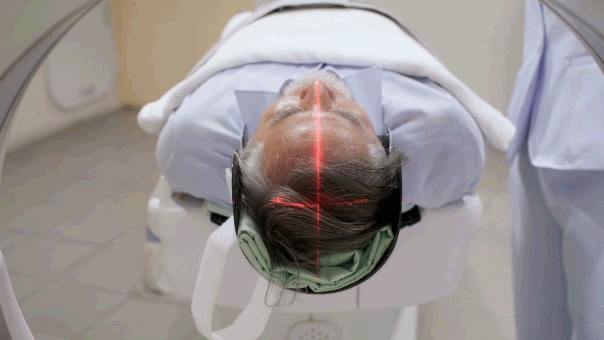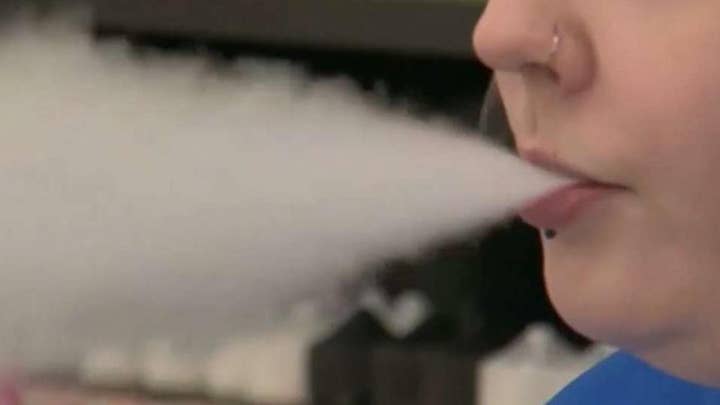Trump administration puts forth new efforts to curb vaping epidemic in young teens
Dr. Manny Alvarez and Judge Andrew Napolitano weigh in on the medical and legal impact of bans and restrictions on e-cigarettes.
Americans are smoking fewer cigarettes than ever.
But this doesn’t mean cigarettes are completely on the way out.
Vaping devices, also known as electronic cigarettes, have exploded in popularity in recent years.
ROMNEY PUSHES E-CIGARETTE RECALL IN RESPONSE TO VAPING-RELATED LUNG ILLNESSES
Leading the way is Juul, which holds nearly three-quarters of the U.S. market share. From 2017 to 2018, Juul sales increased by nearly 800 percent.
While these devices might seem at first blush to be healthier than smoking, they carry many of the same risks — and even a few new risks.
Since last month, federal officials have reported more than 400 cases of serious lung illness that may be tied to vaping.
Dr. Barbara Keber, chair of family medicine at Northwell Health’s Glen Cove Hospital in New York, told Healthline it’s a serious situation.
TRUMP TAKES AIM AT TEEN VAPING, PROPOSES BAN ON NON-TOBACCO FLAVORED E-CIGARETTES
“Many of these people have actually ended up on a ventilator with this acute illness,” she said. “Most of them are actually adolescents or young adults, using e-cigarettes, or e-nicotine instead of smoking.”
Your family doctor will likely tell you that vaping is an addictive habit that’s bad for your body.
Your dentist, meanwhile, may have a few thoughts on why it’s bad for your teeth.
Like cigarettes, vaping devices — Juul or otherwise — are not good for oral health.
Here’s a few of the risks the devices can present for your teeth.
Gingivitis
This oral disease causes inflammation of the gums and can progress to more serious conditions if left untreated.
One of its most common symptoms is bad breath.
Dr. Heather Kunen, DDS, MS, an orthodontist and co-founder of the Beam Street dental clinic in New York, told Healthline that nicotine constricts blood vessels and prevents healthy blood flow.
That means, she said, that vaping (or smoking) can contribute to the development of gingivitis.
Kunen says that when it comes to convincing younger people to stay away from nicotine, she typically appeals to their vanity, explaining to them what gingivitis can do.
“I tell them that if they continue to smoke or vape, their breath will smell and that they will have an increased risk of losing their teeth,” she said.
Periodontal disease
Periodontal disease, or gum disease, is a more advanced stage of gingivitis, one that’s characterized by problems with the tissues surrounding the teeth.
Keber told Healthline that the components found in vaporized nicotine form a bacterial breeding ground along the gums.
“The breakdown of some of these products absolutely softens the tooth enamel and degrades it,” she explained. “That’s one piece of it. But these products also adhere to the saliva in the mouth and create a place for the bacteria to actually settle in the little crevices in the teeth and in between the teeth. It increases the bacterial component in the mouth, giving way to gum disease.”
When gingivitis and periodontal disease go unchecked, teeth can be lost. In fact, periodontal disease is the number one cause of tooth loss.
Tooth decay and oral thrush
These two conditions are both caused by dryness in the mouth.
TEXAS TEEN WHO STARTED VAPING TO QUIT SMOKING ON LIFE SUPPORT, MOM SAYS
Vaping is a major risk factor, due to the way the vapor affects conditions in the mouth.
“We don’t really know exactly what all the ingredients are in the liquid that’s used to vaporize the nicotine,” said Keber. “One of the ingredients that’s known to be in the vaporizing liquid, though, is propylene glycol, which is something similar to what’s used in antifreeze. And once you vaporize, the breakdown includes some pretty significantly harmful products.”
Propylene glycol actually restricts moisture by binding to moistness inside the mouth. This leads to a dry mouth and a dry throat, which both contribute to tooth decay and oral thrush.
These chemicals also have a way of softening the enamel in the teeth, which also contributes to adverse effects.
“That softening of the enamel leads to a possibility of increased development of dental cavities, or tooth decay,” said Kunen.
Oral cancer
There’s a perception that vaping may not be healthy, but that it’s healthier than smoking.
“No company has been able to show any scientific data that e-cigarettes are safe or a healthier alternative to smoking,” said Kunen. “Preliminary studies carried out by national health organizations are showing that e-cigarettes do indeed pose huge health risks and contain carcinogens that can cause DNA changes that lead to cancer.”
One study, released last year by the American Chemical Society, did indeed conclude that vaping chemicals may damage DNA, thus increasing the risk of developing cancer.
“The vapor breaks down into acetic acid, lactic acid, and propionaldehyde, all of which are toxic, and toxic to the tissues in the oral cavity,” said Keber.
To vape or not to vape?
Vaping is a new enough practice that scientific literature is still playing catchup.
CLICK HERE TO GET THE FOX NEWS APP
Kunen says that while e-cigarettes might be appealing to someone who is looking for an alternative to cigarettes, they should be avoided at all costs.
“E-cigarettes are not safe and are not a healthier alternative to tobacco cigarettes, period,” she said. “Their sleek appearance and vapor-like aerosol masks the danger that lies within. The high popularity of Juul and other e-cigarettes, especially among the young population, should be of major concern and the associated risks of e-cigarettes must be more highly publicized.”












































